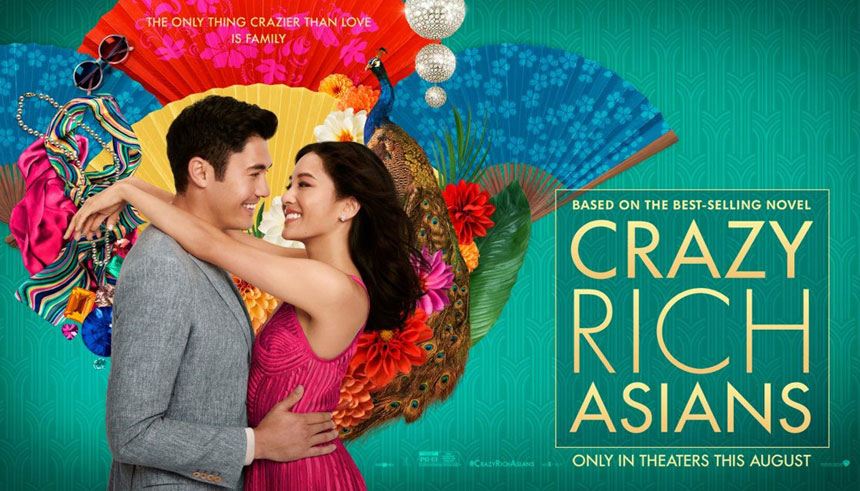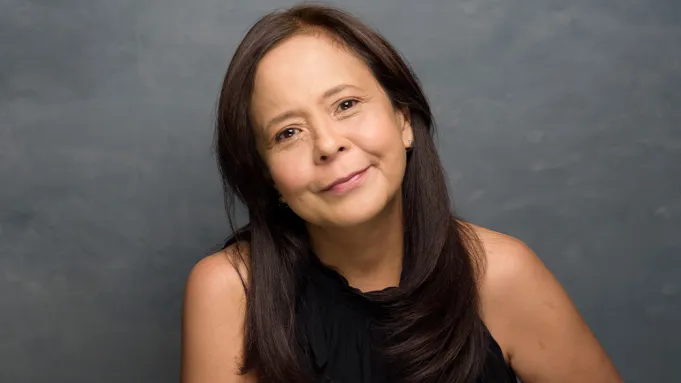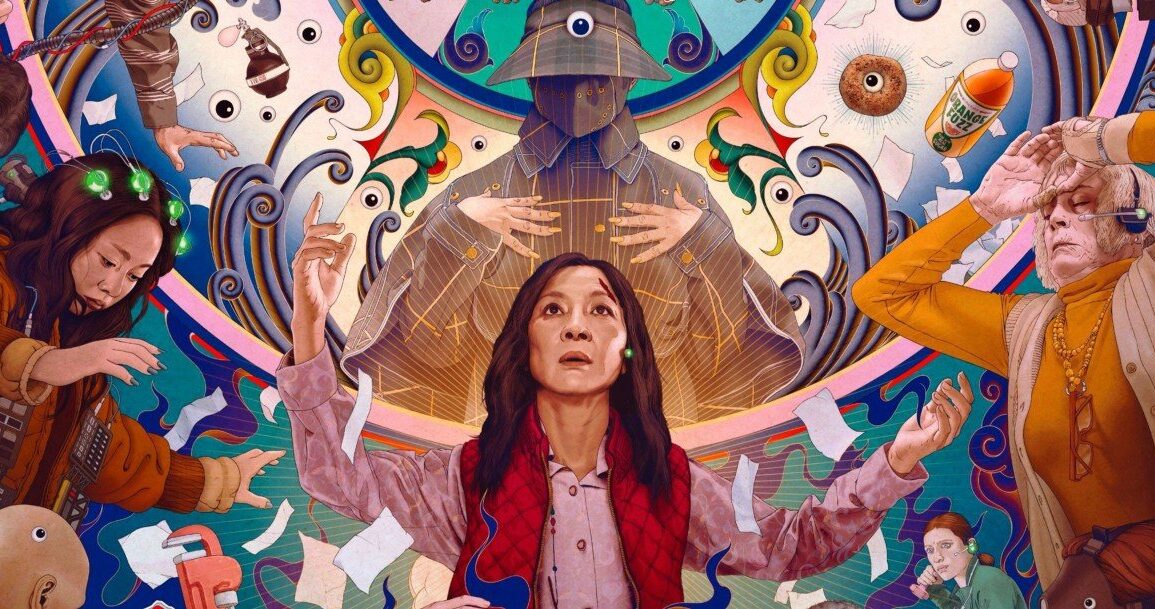From Blackpink’s Lisa to Filipino actress Ruby Ruiz in Prime Video’s ‘Expats,’ Asians are starting to carve out bigger spaces for themselves in the global entertainment scene.
Blink or not, we’ve all heard the news—Blackpink’s Lisa is joining the cast of White Lotus 3.
According to an article published on the entertainment website Variety on Feb. 13, the Thai pop superstar will be credited under her real name, Lalisa Manobal, in the third season of the hit HBO series. What her role is remains under wraps, as with the other cast members.

Photo by Pascal Le Segretain/Getty Images
Lisa’s casting makes perfect sense. Not only will her massive popularity help boost viewership and social media engagements, despite the series already being popular in itself, but production will be set in Thailand, her home country.
Her being part of a hugely popular series is great news, not only for her legions of fans. Perhaps, more importantly, it is another proof of how Asian representation in Hollywood has been increasing in recent years.
Asia in the spotlight
Lisa is not the first Blackpink member to appear in an HBO series. That honor goes to Jennie (credited as Jennie Ruby Jane), who made her acting debut in the drama The Idol, which premiered in June 2023.
Other Koreans who have had huge projects in Hollywood include Park Seo Joon who starred in last year’s The Marvels, and Lee Min Ho who headlined Apple TV’s adaptation of the bestselling novel, Pachinko, a year earlier. Both actors are already superstars in their native South Korea and are also quite well known around the world.

Recent wins at major film festivals by Korean-Canadian director Celine Song of Past Lives and Korean-American director Lee Seong Jin and actor Steven Yeun of Beef—are further proof of the dynamism of Asian representation in Hollywood films and television.
But it’s not only Hallyu celebrities or those of Korean descent who are starting to get meatier roles in Hollywood.
I think it would be safe to say that it was the 2018 big screen adaptation of the book Crazy Rich Asians by Kevin Kwan which blazed the trail for other Asian-centric films to follow. It is the first production by a major Hollywood studio to feature a majority cast of Chinese descent in a modern setting since The Joy Luck Club in 1993.

There’s also Shang-Chi and the Legend of the Ten Rings, the first Marvel Studios film with an Asian director and a predominantly Asian cast. The movie gave Hong Kong superstar Tony Leung his first Hollywood role despite his already legendary status in Asian cinema.
Though Michelle Yeoh has long been a respected figure in Hollywood, she only recently joined the pantheon of Hollywood greats with her memorable performance as Evelyn Quan Wang in the 2022 film Everything Everywhere All at Once. Vietnam-born actor Ke Huy Quan was equally formidable as Evelyn’s goofy yet charming husband Waymond. The film garnered critical acclaim and a cult following, and won seven Academy Awards out of eleven nominations.

Even Disney has been trying its hand at better Asian representation with movies such as Raya and the Last Dragon (2021) and Turning Red (2022).
Filipinos—and not only US-based ones—are also being given the chance to shine. Dolly de Leon is top of mind for many of us, who, in the 2022 film Triangle of Sadness, dazzled critics and viewers alike, earning her a much deserved Golden Globe nomination, a first for a Filipino.
In the same year, Cagayan de Oro-born actress Chai Fonacier starred in Nocebo alongside Eva Green and Mark Strong. Green took to Instagram to show her admiration for her Filipino co-star where she wrote: “Chai is truly a great actress with extraordinary depth and sensitivity and she was an incredible partner—she blew me away!”
More recently, Liza Soberano made her Hollywood debut with Lisa Frankenstein. Though the film has been met with mixed reviews, critics have been heaping praises upon the former ABS-CBN contract star.

We also have award-winning actress Ruby Ruiz and Hong-Kong-based singer Amelyn Pardenilla, who are seen alongside Nicole Kidman in the currently airing miniseries Expats on Prime Video.
More Asian visibility
The observation that there is now more Asian representation in entertainment is backed by data from a research conducted by the USC Norman Lear Center and the non-profit organization Gold House which was published last November 2023 (access the full research study here).
The study identified all Asian characters that appeared in the top 100 television series or films popular on streaming platforms in 2022—for a total of 347. Of these, 99 (28.5 percent) were categorized as major characters, consisting of 20 leading characters (5.8 percent) and 79 supporting characters (22.8 percent).
The research concludes there is indeed “a significant increase of Asian characters from 3.4 percent to 15.9 percent over the course of 2007 to 2022″—an almost five-fold spike.
Persistent disparities
Despite more visibility, specifically in Hollywood-produced films and movies, the study reveals that “these roles still spotlight proximity to whiteness” more often than they showcase authentic cultural specificity.

Photo from Warner Bros.
42 percent of Asian characters had light skin tones, for instance. Think the dashing Henry Golding in Crazy Rich Asians. Meanwhile 68 percent of Asian characters never spoke to another Asian character, despite an average of four Asian characters per title. Moreover, 19 Asian women were shown as the love interest of someone else, 53 percent of which were—surprise, surprise—white men.
The research also found “limited cultural specificity and a lack of cultural breadth and diversity” despite increased visibility. It also found some portrayals that were consistent with stereotypes, particularly those portraying Asians as “model minorities” such as Meilin “Mei” Lee in Turning Red, or “martial arts masters” such as Simu Liu as the titular Shang-Chi in Shang-Chi and the Legend of the Ten Rings.
In another article on Variety, Soraya Giaccardi, senior researcher at the USC Norman Lear Center, said that the study was “an opportunity to take a deep dive into the quality of prominent Asian roles, and our results underscore the importance of nuance in the discussions we have around representation.”
She added that avoiding tropes and stereotypes by simply erasing cultural specificity only serves to further obscure the breadth and diversity of the Asian diaspora.
Showcase greater diversity, shatter stereotypes
In response to these disparities and to promote more nuanced portrayals of the Asia-Pacific diaspora and Asian cultures as a whole, the researchers outlined some recommendations.
First is to elevate Asian creators in key decision making roles and prioritize casting for authenticity. They also suggest leaning into cultural specificity by incorporating key aspects of the actor’s heritage into the storyline.



The study also recommends telling more stories that transcend race, after all, cultural specificity does not mean that ethnicity should define Asian characters.
The “dimensionality and intersectionality” of Asian characters should also be expanded by showcasing greater diversity in sexual orientation, age, body size, and skin tone.
The researchers also cautioned against falling prey to common tropes such as the “model minority” or the “martial arts fighter.”
2024 is shaping up to be one where Asians gain more representation in Hollywood and beyond—Marina Summers, for starters, is making waves in the UK edition of RuPaul’s Drag Race.
We can only hope for the trend to continue in ways that break stereotypes and promote greater Asian cultural diversity in television and film.




